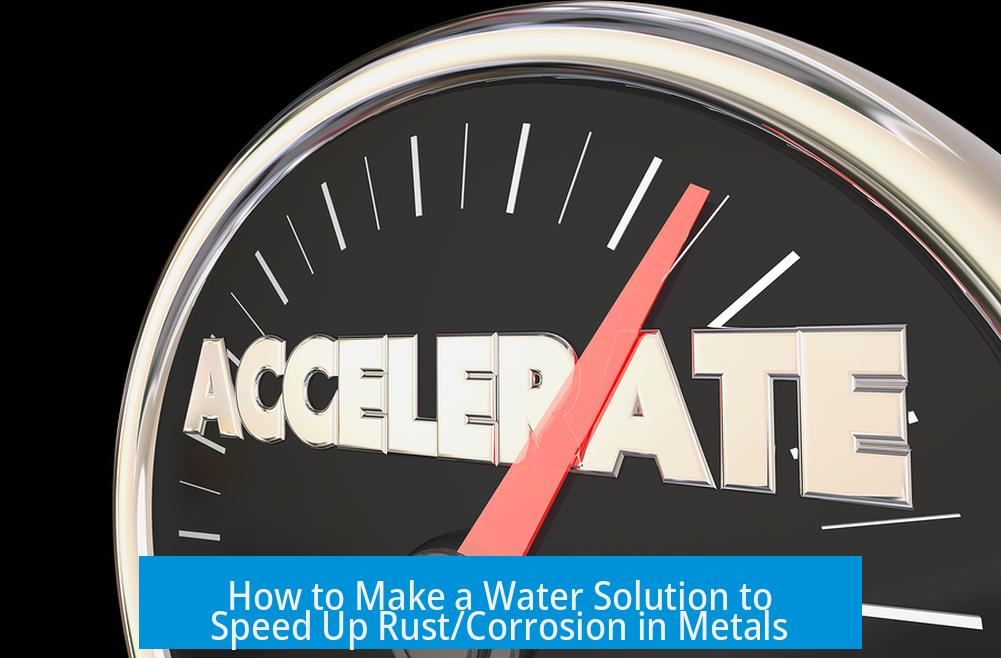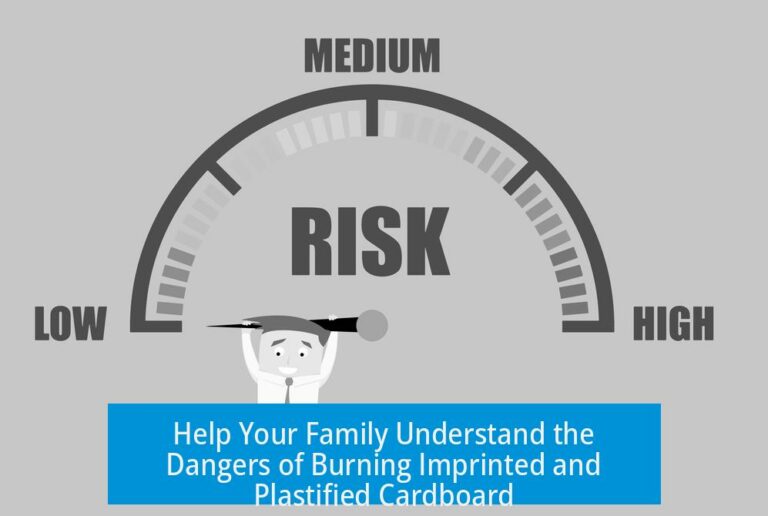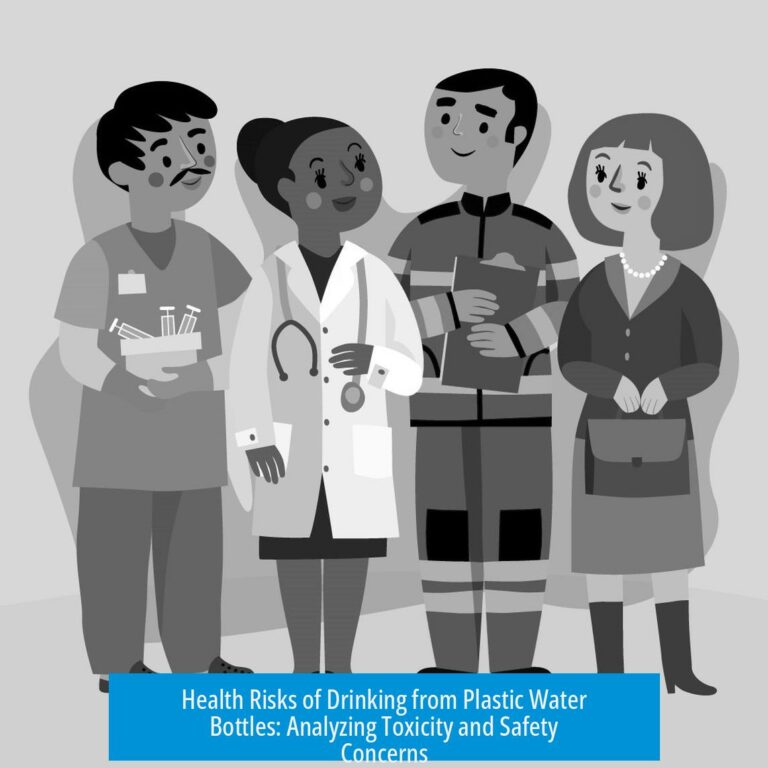How to Make a Water Solution to Speed Up Rust/Corrosion in Metals

To accelerate rust or corrosion on iron or steel, a water solution containing salt and an oxidizing agent such as vinegar or hydrogen peroxide works effectively. The key to speeding corrosion lies in the presence of oxygen and salt which promote the electrochemical process eating away the metal.
Essential Ingredients
- Salt (NaCl): Acts as an electrolyte that facilitates electron transfer, speeding rust formation. A 3.5% by weight NaCl solution matches seawater salinity and works well.
- Water: Provides a medium for ions to move and is necessary for the oxidation reactions.
- Vinegar (Acetic acid): Adds acidity, increasing the metal’s corrosion rate. It reacts with metals to form iron acetate, which rusts faster.
- Hydrogen peroxide (H2O2): Supplies oxygen to maintain a high oxidation state, ensuring continuous rust formation.
- Hydrochloric acid vapor (optional): In sealed containers, a few drops of HCl produce acidic vapors that accelerate corrosion more than salt solutions.
Preparing and Applying the Solution
Mix salt in water until it reaches roughly 3.5% concentration. Add vinegar or hydrogen peroxide to this salty water for faster results. The solution should be fresh and applied to the metal surface directly.
Techniques to Maximize Corrosion Speed
- Surface Preparation: Scuff the metal with sandpaper to remove protective layers. This exposes more surface area, allowing chemical agents to act efficiently.
- Oxygen Diffusion: Use a shallow container just covering the metal to maximize air contact. Alternatively, wrap the metal in moist cloth or toilet paper soaked in the solution and place it on a shallow liquid puddle. This keeps oxygen readily available while maintaining moisture.
- Container Setup: For HCl vapor acceleration, suspend the metal inside a closed container with a small water amount plus a few drops of hydrochloric acid at the bottom. The vapor intensifies corrosion without direct contact.
Summary of Key Points
- Salt and oxygen are critical for speeding rust.
- Vinegar or hydrogen peroxide accelerates oxidation.
- Surface scuffing exposes metal to chemicals.
- Moist cloth or shallow bath maintains oxygen and moisture.
- HCl vapor can enhance corrosion rates significantly.
How do salt and vinegar accelerate rusting in metals?
Salt and vinegar help rust form faster by acting as catalysts. Salt dissolves in water to create ions that speed up electrochemical reactions. Vinegar’s acidity breaks down the metal surface, allowing rust to develop quickly.
What role does oxygen play in speeding up corrosion?
Oxygen is crucial for rust formation. It reacts with iron to form rust. Adding hydrogen peroxide keeps oxygen levels stable, while exposing metal to air maintains oxygen diffusion for faster corrosion.
Why should the metal surface be scuffed before applying the rusting solution?
Scuffing the metal removes protective layers and exposes more surface area. This increases contact between the metal and rust-promoting solution, leading to quicker rust formation.
How does wrapping metal in moist cloth improve rusting speed?
Wrapping the metal in a moist cloth keeps the surface wet and allows oxygen to reach it. The cloth acts like a sponge, holding the rust solution close, which speeds up corrosion without fully submerging the metal.
Can hydrochloric acid vapor speed up rusting compared to saltwater?
Yes. Hydrochloric acid vapor promotes rust faster than saltwater by producing a more aggressive corrosive environment. Suspending metal above a mix of water and a few drops of HCl speeds up the rust process effectively.





Leave a Comment